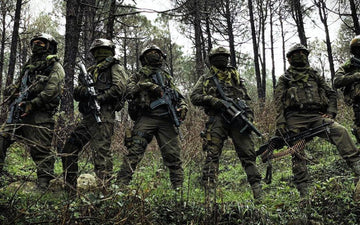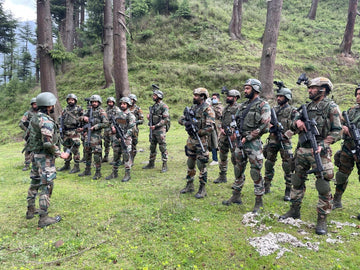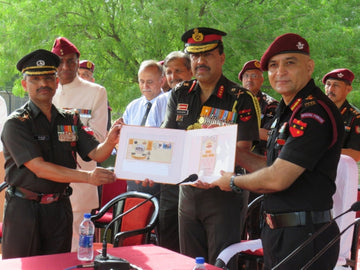Becoming an Aide-de-Camp (ADC) to the President of India is a prestigious goal that embodies the highest ideals of service, professionalism, and dedication to the nation. This role not only represents an honor bestowed upon exceptional individuals in the Armed Forces but also signifies the vital relationship between the military and civil authorities in India. As representatives of the Indian Armed Forces, ADCs play crucial roles in national governance and ceremonial functions, bridging the gap between defense and diplomacy.
Historical Context
The tradition of appointing Aides-de-Camp can be traced back to military practices, where such officers acted as personal assistants to senior military leaders. In the Indian context, with the establishment of the Republic in 1950, the role of ADCs evolved and became integral to the constitutional framework, where ADCs to the President now symbolize the commitment and loyalty of the Armed Forces. Throughout history, ADCs have held significant responsibilities during national events, including independence celebrations, state visits, and other ceremonies that project India's sovereignty and dignity.
The position of ADC to the President is steeped in responsibility, as these officers are often involved in making crucial decisions that impact national policy and governance. Given these historical ties, the position is not merely ceremonial; rather, it shapes the public perception of the military's role in national affairs and fosters a sense of pride in the Armed Forces.
Eligibility Criteria
To aspire for the role of ADC to the President of India, candidates must meet stringent eligibility criteria, highlighting the importance of military experience and proven leadership capabilities.
Military Experience
Candidates must possess a minimum of 5 to 7 years of service in the Indian Armed Forces, which includes the Indian Army, Navy, and Air Force. This experience should ideally encompass leadership roles, with candidates serving as Commanders or in equivalent positions. The selection committee evaluates candidates based on their performance history and mission accomplishments during their tenure in the military.
Qualifications and Skills
Beyond meeting basic eligibility criteria, successful candidates exhibit a range of qualifications and skills that set them apart from their peers.
Performance Record
A robust record of excellence is crucial. Candidates should have demonstrated strong leadership capabilities throughout their military careers, showcasing exemplary conduct and integrity. Commands held during operational deployments can serve as excellent indicators of a candidate’s ability to function under pressure and achieve objectives.
Physical Fitness
The demands of being an ADC require candidates to maintain high physical fitness levels. The role often necessitates long hours, extensive travel, and attendance at various public engagements, which necessitates robust health.
Administrative and Leadership Skills
Outstanding organizational and leadership skills are essential. A deep understanding of the Indian political and bureaucratic system is critical to ensure effective communication and coordination with civilian authorities.
Language Proficiency
Proficiency in English is mandatory, as it is the primary language for official communications. Additionally, fluency in at least one other Indian language enhances the ADC’s ability to communicate effectively within the diverse linguistic landscape of India.
Personal Attributes
Candidates must possess excellent interpersonal skills, adaptability, and a capacity to work well under pressure while maintaining confidentiality. These attributes are vital as ADCs may need to operate discreetly in sensitive situations.
Selection Process
The selection process for becoming an ADC is rigorous, involving several stages designed to ensure that only the most qualified candidates proceed through the ranks.
Application
The journey begins with candidates submitting their applications through appropriate military channels, signaling their interest in this prestigious role.
Screening
Candidates undergo a comprehensive review of their military service records and performance evaluations, assessing their readiness for the responsibilities of the ADC role.
Interview
Shortlisted candidates face interviews conducted by a high-level selection committee. This committee evaluates candidates on various fronts, including their understanding of the role and their ability to articulate how their experience aligns with the responsibilities of an ADC.
Background Checks
Successful candidates must also pass extensive background checks, which can include personal and financial assessments to determine suitability for a position of such trust and responsibility.
Training
Once selected, ADCs participate in specialized training tailored to equip them for their duties.
Protocol Training
Given the nature of the ADC's responsibilities, protocol training is essential. This training covers the intricacies of military and governmental protocols, ensuring ADCs can effectively manage formal events and ceremonies.
Administrative Skills
Enhancing skills in organization, time management, and communication is vital. ADCs must excel in multitasking, as they often juggle varied duties concurrently.
Security Procedures
Training in security protocols is imperative to ensure the safety of the officials they serve, especially during public engagements where risks can be heightened.
Role and Significance
The ADC to the President not only performs ceremonial duties but is also an integral part of the decision-making framework of the Indian government.
Responsibilities of ADCs
ADCs assist the President in various capacities, such as:
- Coordination: Facilitating effective communication between the President’s office and various military branches.
- Advisory Role: Providing advice on military matters and operations, offering insights that inform presidential decisions.
- Events Participation: Representing the Armed Forces during significant national events, showcasing the military's role in governance.
The significance of an ADC extends beyond formal duties; it embodies the ethos of service, integrity, and loyalty that the Armed Forces uphold.
Case Studies or Real-world Applications
Numerous ADCs have played pivotal roles during their tenure, influencing decision-making in ways that resonate with their personal and professional integrity.
For instance, consider the pivotal role of a former ADC who provided key insights into military strategies that influenced crucial policy formulations during a boundary crisis. Such responsibilities are indicative of the trust placed in ADCs by the President and underscore the extensive impact they have on national affairs.
Similarly, the adaptability of ADCs is often tested during engagements with international dignitaries. A notable incident involved an ADC managing the complexities of hosting foreign military heads, showcasing India's military diplomacy and facilitating bilateral discussions on defense collaboration.
Statistical Data and Research Insights
According to military records, the selection process sees a mere fraction of applicants successfully transitioning into the ADC role, underlining its highly competitive nature. Only about 5% of candidates who apply are selected, emphasizing the need for excellence in military service and personal attributes.
Research also indicates that ADCs report exceptional levels of job satisfaction, often citing the unique blend of service and civic duty as a major contributor to their sense of fulfillment. A survey of former ADCs revealed that over 80% believed their role was instrumental in fostering greater understanding between military and civilian domains, thus reinforcing the criticality of their positions.
Challenges and Solutions
Like any prestigious role, the position of ADC comes with its own set of challenges:
- High Expectations: The expectations placed on ADCs can be overwhelming. To navigate this, prospective candidates are encouraged to seek mentorship from experienced ADCs to understand the dynamics better.
- Work-life Balance: The demanding nature of duty often hampers work-life balance. Implementing effective time management strategies during training can prepare candidates for this aspect.
- Security Concerns: Given the high-profile nature of their work, ADCs often face security risks. Regular training updates on security protocols and threat assessment will enhance their preparedness.
Future Trends and Predictions
As India navigates a rapidly changing global landscape, the role of ADCs is likely to evolve in response to new geopolitical realities.
Increased engagement with international stakeholders emphasizes the need for ADCs who can effectively communicate India’s defense strategies while maintaining strong ties with armed forces counterparts from across the globe.
With the growing emphasis on technology in defense, ADCs may also find themselves adapting to enhanced communication tools and data analysis platforms, adding a new layer of complexity to their responsibilities.
Conclusion
Becoming an Aide-de-Camp to the President of India represents a culmination of years of military service, leadership, and personal integrity. Given the position's historical significance and the profound responsibilities it entails, aspiring candidates need to prepare rigorously, aligning their skills and attributes with the expectations of this esteemed role.
As ADCs continue to bridge the military and civilian leadership domains, they help protect and project India’s sovereignty, showcasing the unwavering commitment of the Armed Forces to the nation. For those who aspire to this challenging yet rewarding path, understanding the nuances of the selection process, the training involved, and the broader implications of their role will be critical to their success.
Embarking on this journey not only represents a personal achievement but also contributes to the enduring legacy of service and dedication that defines the Indian Armed Forces.





